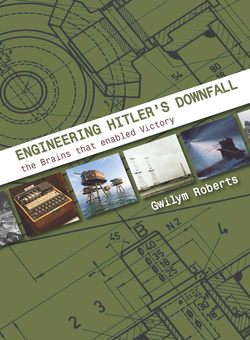Читать книгу Engineering Hitler's Downfall - Gwilym Roberts - Страница 18
На сайте Литреса книга снята с продажи.
Inside the Toyshop
ОглавлениеShortly before the outbreak of war the War Office had established a new department under the direction of Lieutenant-Colonel (later Major-General) Joe Holland RE. This was called Military Intelligence (Research) (MIR) and was intended to work closely with the Foreign Office on military intelligence matters. Assisting Holland were Major (later Major-General Sir) Millis Jefferis RE and Stuart (later Colonel Stuart) Macrae, the then editor of the magazine Armchair Science.
The organisation became known to Churchill, then the First Lord of the Admiralty, when he came up with his idea for creating floating mines – a task which its boffins successfully achieved and demonstrated to various British and French VIPs. After he became Prime Minister he continued to take a close interest in the department’s activities, and he overrode senior officials who wanted it incorporated into the Ministry of Supply. He ruled in November 1940 that it should become the first subsidiary department of the Ministry of Defence – hence MD1. It was then effectively under the direct control of Churchill and Lindemann, who made weekly visits to the department.
The department’s unofficial history, written by Macrae’s son and entitled Winston Churchill’s Toyshop, states that it designed 26 entirely new weapons which went into quantity production and which ranged from small booby-traps to heavy artillery, aircraft bombs, and naval mines.
Initially housed in a small office in the War Office in Whitehall, the department moved in 1940 to Portland Place, but after that building was damaged by bombing a few months later additional premises were found at The Firs, Whitchurch, near Aylesbury in Buckinghamshire. This was a country house large enough to provide offices and accommodation, and had stabling that could be converted into workshops. A telephone network was installed at Portland Place which enabled direct communication from both stations with the War Cabinet and various War Office departments.
In his history of the war, Churchill wrote: ‘This was … no time to proceed by ordinary channels in devising expedients. In order to secure quick action, free from departmental processes, upon any bright idea or gadget, I decided to keep under my own hand as Minister of Defence the experimental establishment formed by Major Jefferis at Whitchurch.
‘While engaged upon the fluvial mines in 1939 I had had useful contacts with this brilliant officer, whose ingenious inventive mind proved, as will be seen, fruitful during the whole war. Lindemann was in close touch with him and me. I used their brains and my power.’
A demonstration range, explosive filling sheds, pools for underwater experiments, and production units for certain weapons were built in the grounds and women were bussed in from a hostel to work the machines. A range at Risborough was also used to demonstrate weapons to the Prime Minister and other VIPs.
